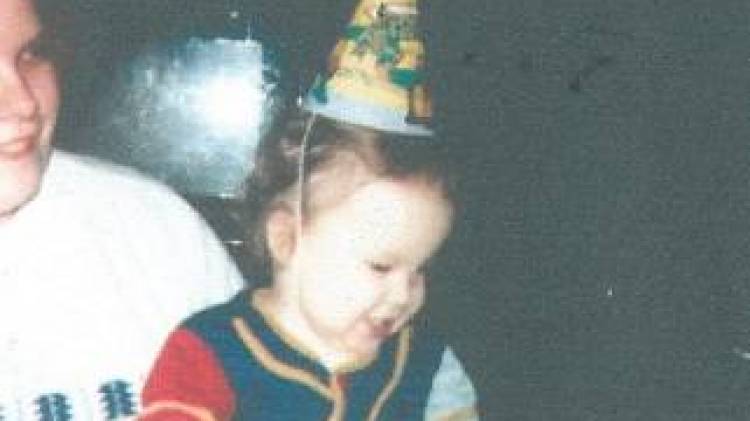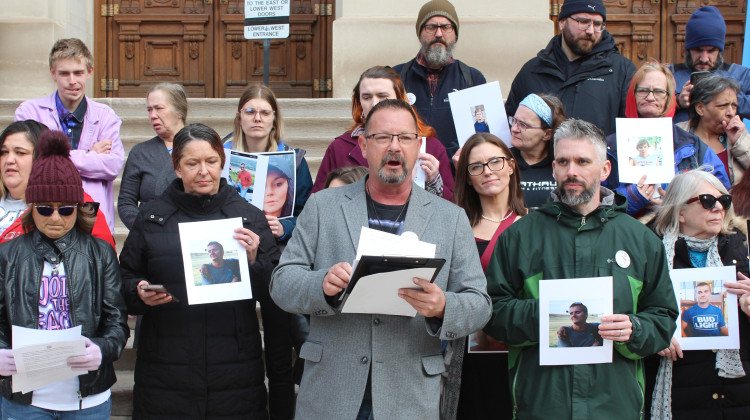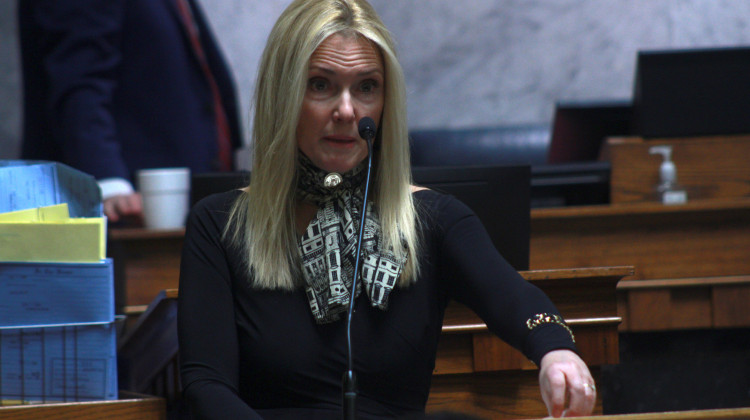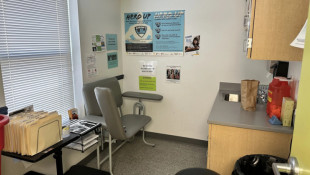Standing near the front door of her fourth floor apartment, Kristine Bunch opens a small drawer and pulls out a handful of pictures.
A tattoo on the inside of her right wrist stands outs as she thumbs through the photographs of her two sons. The ink reads “freedom” and for Bunch, the word means everything.
"I still have to look at it and I still have to remind myself that yea, I'm free," said Bunch.
For 17 years, Bunch wasn’t free.
Like the tattoo on her wrist, there’s an indelible mark on Kristine’s Bunch’s life: the 17 years she served in prison, wrongfully convicted of killing her three year old son in the summer of 1995.
Bunch’s trailer home in Greensburg, Indiana caught fire and her toddler, Tony, died in the blaze.
Prosecutors charged Bunch with arson and murder, and the next spring, pregnant with her second son, Trent, and still grieving over Tony, a jury sent Bunch to the Indiana Women’s Prison to serve 60 years for murder and 50 for arson.
"There's a lot of anger, a lot of sadness, a lot of grieving for everything you've lost and everything you continue to lose because every day you lose something else," said Bunch. "There is another moment you didn't get with your loved ones, with life."
The pain of losing one son and the fear of losing another while locked up motivated Bunch to stay strong and maintain her innocence.
"I remember one of the gals said to me, 'you don't want people to think you're that person, show them that you are not,'" she said. "At that point, I was on a mission and I had to show them that I was different from everything they said I was or thought I was."
Bunch tutored fellow inmates working on their education and completed degrees in English, Anthropology, and Educational Psychology from Ball State University.
And when she wasn’t working or studying, Bunch volunteered in the law library.
Meanwhile, defense lawyers found new evidence proving she didn’t set the fatal fire. The Court of Appeals reversed her conviction -- a decision later upheld by the Indiana Supreme Court and in September of 2012, 17 years, one month, and 16 days after she was arrested - Kristine Bunch was released from prison.
"I've changed and grown and found more determination and strength than I ever thought that I had," she said.
Bunch had a little safety net - she lived with her brother while she was getting on her feet – but no help from Indiana, because it’s among the 21 states that don’t offer compensation to people who are wrongfully convicted:
"I'm having to ask people for rides. I'm having to ask everybody for the things that I need and so it's very humbling for a person with pride and this whole sense of 'I can do it and I can work and I can make my own.' So, it was hard," she said. "It was hard to accept that. It's hard to continue to accept that.”
Receiving nothing for her time served left Bunch vulnerable.
"It could have been so much worse for me. I could have had nobody when I walked out and I am in a prison uniform and that's all I have," she said. "That's just not fair or right. Somebody is in there to no fault of their own and then to come out and have nothing, that's not good."
Fran Watson - co-director of the Law School Clinical Programs at Indiana University Robert H. McKinney School of Law - said of Bunch, "I can't think of a better example of an individual who should be compensated"
“When people get out, they are glad to be out, and what they wanted to do while they are in there is live their life, so when you get out and you've been caged all that time and you want to live, we all know that takes resources.”
In some states, like Texas, exonerees receive $80 thousand dollars for each year they were wrongfully imprisoned. Other states help with training and education. Indiana, Watson says, lacks the political will to enact a compensation law.
"You have to have the leader. You have to have the person championing the issue," she said. "We know that's how our system works. Then you need to build momentum and then right now, for example, in Indiana, Initiatives with fiscal impact are on the slow path, at least from my observations. So, timing is important too if you are going to get it done."
But, State Senator Randy Head says the issue is more complicated than just having political will.
"I guess my main question would be, if someone is exonerated, does this just mean that the state couldn't prove they were guilty or they were truly found to be innocent," said Head."
The Republican from Logansport says he would be open to considering compensation for cases where DNA is used to prove innocence, but says even still, there are grey areas.
"I think because the facts are always different, for instance, someone is exonerated because a witness came forward and said that they had lied, that may not be the fault of Indiana," said Head. "Whereas if it is prosecutorial misconduct results in an overturned conviction and the state decides not to prosecute after that, you know, it's a totally different scenario."
Some Hoosier lawmakers have pushed bills for compensation to specific individuals, but no one has stepped up to push for a compensation fund and former Legal Director of the ACLU of Indiana, Richard Waples, says that’s wrong.
"We have statutes and requirements that the state compensates people if you take away property wrongly or take it away for public purposes. That state's got to pay for that," he said. "But, here they are taking away people's liberty, years of their life and there is no compensation."
Opponents say it’s unnecessary because exonerees can sue the state in civil court – a step Kristine Bunch has taken. Those cases cost time and money – and even when DNA evidence makes a clear case for compensation, plaintiffs have a tough chance of winning.
"Most of those (lawsuits) aren't successful," said Waples. "The compensation can be large but, the chances of somebody even winning those suits is pretty low. The legal framework to sue the government is itself hard to do because the government makes those laws, makes the rules about when it can be sued."
Kristine Bunch moved from Indiana to Evanston, Illinois for a fresh start. Had she been convicted and exonerated in the state where she now lives, she’d be eligible for almost $200,000 in compensation.
She believes her transition would be easier if Indiana provided her with financial resources, but she doesn’t dwell on it.
"I feel like there is nothing that can't be changed," she said. "You can always find hope. There is always a way and you can make it."
Bunch now works at a chapel and religious center on the campus of Northwestern University. She volunteers and speaks at the school’s Center for Wrongful Convictions and is saving money for law school.
But, it’s the simple parts of life that truly make her feel like a free woman.
"Every morning I go outside and my fire escape is right out here," said Bunch. "I'll go out rain, snow, ice, doesn't matter, I am out there because you feel that breeze and you know, that's freedom."
 DONATE
DONATE






 View More Articles
View More Articles



 Support WFYI. We can't do it without you.
Support WFYI. We can't do it without you.